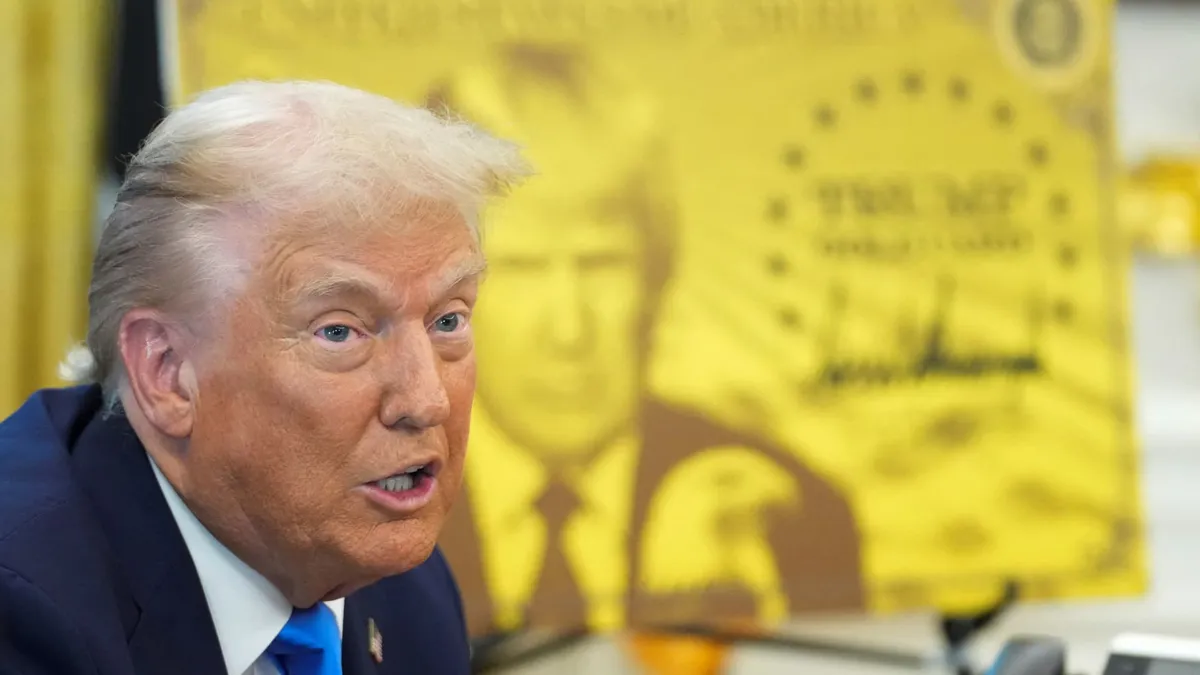
In a stunning move, President Donald Trump announced late Friday plans to impose a hefty $100,000 annual fee on H-1B visas, a decision that could significantly disrupt the program which is critical to America's technology workforce. This announcement could have far-reaching consequences for companies that heavily depend on highly skilled immigrants, particularly those from India and China.
The Trump administration stated that this new fee would be applied per worker, per year, posing a substantial challenge to companies in the technology and finance sectors. The announcement sent shockwaves through corporate America, as many firms rely on H-1B visa holders to fill crucial positions within their organizations. For instance, Amazon, known to employ over 14,000 H-1B holders as of June, has advised its visa holders to remain in the U.S. and for those abroad to return before the deadline of 12:01 a.m. ET on September 21, as per internal communications reviewed by CNBC.
Similarly, JPMorgan Chase's legal team has circulated a memo urging H-1B visa holders to stay in the country and refrain from international travel until further clarification is provided. Microsoft has also reportedly advised its H-1B visa holders to remain in the U.S., warning that any international travel could jeopardize their immigration status, according to emails obtained by Reuters.
This recent announcement marks the Trump administration's most aggressive approach to restricting legal immigration since taking office in January. While the administration has previously enacted measures to clamp down on both illegal and legal immigration, this latest move represents a significant escalation in efforts to limit employment visas.
Alongside Amazon and Microsoft, other major tech firms such as Meta, Apple, and Google each had over 4,000 H-1B visa holders among the top 10 recipients for the fiscal year 2025. CNBC has reached out to these companies for comments regarding the new visa fee, but the White House has yet to respond to inquiries.
The announcement has also triggered a flurry of activity among foreign governments, as they scramble to evaluate the implications of the new rules for their skilled workers and companies. India's Ministry of External Affairs is currently assessing the visa restrictions and their potential impact, emphasizing the shared interest between Indian and U.S. industries in maintaining competitiveness in innovation.
The Ministry has also highlighted the humanitarian consequences of such measures, noting the disruption that could affect individual families. "This measure is likely to have humanitarian consequences due to the disruption caused for families," the Ministry stated, expressing hope that U.S. authorities would address these concerns appropriately. South Korea's foreign ministry is also actively evaluating the potential implications for Korean firms and skilled labor.
For further information, below is a searchable list of the top 100 U.S. companies that were recipients of H-1B visas in the fiscal year 2025. This list can provide insights into which companies are most affected by the new visa fee and how it might influence their hiring practices moving forward.